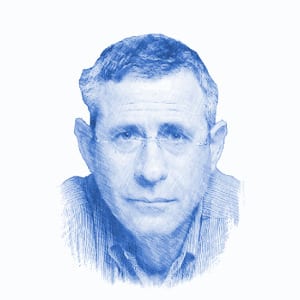Most Western countries yearn for the day that democracy is established in the Arab and Islamic world. Democracy means freedom to vote, a legitimate regime, human rights, freedom of speech, freedom to assemble, the rule of law, equality among citizens, free press and all the other wonderful characteristics that make it fullfilling and desirable to live in the West. To Western eyes, democracy is the only way to run an organized, sustainable and respectable state.
When the “Arab Spring” broke out towards the end of 2010, many Western observers thought they saw the buds of democracy beginning to flower at Cairo’s Tahrir Square, soon to make the Middle Eastern deserts bloom, while butterflies born during the Tunisian youth march fluttered above the cruel political systems of the region’s countries. And when the Muslim Brotherhood began to rule Egypt in the middle of 2012, democratically, of course, the democracy seers called Turkey an Islamic democracy, not at all a bad thing.
Eight years have passed since then and what has become clear is that ruling dictators were definitely deposed – either entirely or partially – in five Arab states (Tunisia, Egypt, Libya, Yemen and Syria) but that what took their place can hardly be called democracy. Instead, there are a variety of dictatorships: ISIS in Syria and Iraq, Al Sisi in Egypt, terror in Libya, war in Lebanon and total destruction in Syria. Turkey, the mother of Islamic democracy, has become an Ottoman Erdogan-style Sultanate, a goal achieved, of course, by democratic means.
While governability deteriorates in the Arab world, Iranian interference becomes more and more pervasive, entering the Arab states by way of ever-widening holes in their shaky social structure. Iran sends its militias to these countries to set up strongholds for future use, and in every place reached by Iran, the wars become crueler and harder to bring to an end. The enormous sums of US cash money – over 100 billion dollars – that Obama gave the Iranians funded boiling oil feeding the fires of the Middle East. Now Iran demands 300 million Euro from Germany. To what purpose?
The Arab public is not blind, nor is it deaf or stupid. It understands full well what is happening, and the ensuing despair all over the Middle East about the possibility of finding a solution to the region’s woes through nice, desirable European solutions such as democracy, is the reason for the waves of migrants to Europe.
In previous articles written over the past few years, I described the difficulty in adapting a solution that reflects European culture to the Middle East’s problems. The culture gap is simply too large and too deep.
Elaph, the first and largest independent daily online newspaper in the Arab world, recently ran a survey whose results were very worrying. They bear out my claim that democracy is not applicable in this region. The survey is brought below almost in its entirety, as published in Elaph by Khian Alajeri, with my additions in parentheses.
“When elections result in a handicapped child! The Arab majority says No, No! And does not believe in democratic fairness in our land.”
Elaph asked its readers: “Do you believe democratic equitability can exist in Arab states? ” An overwhelming majority answered in the negative. This is, to all intents, in opposition to the Arab Spring which destroyed countries, exiled their residents and spawned handicapped children who do not believe in democracy.
Once the spark of new Arab revolutions was lit by the “Jasmine Revolution” in Tunisia, and signs of an Arab Spring were seen on the horizon after a long winter of dictatorship, a large proportion of Arabs were informed about the proposed democratic changes – without the use of jaded expressions such as “the needs of the period” and the usual war-against-Israel excuse for shutting mouths and postponing democracy.
The winds, however, blew in a direction unacceptable to the Arab junior fleet which yearned for a pluralistic political society, for freedom of opinion, for enhanced social and economic development based on ending the regime’s monopolies, war economy and state of emergency that went from temporary to permanent while the volatile regimes stabilized.
At the edge of the abyss
Elaph asked its readers in its weekly poll: “Do you believe in the fairness of democratic activities in Arab nations?” The answers were sweepingly negative, because the percent of responders who have given up on that fairness was over 96%. Only 4% showed evidence that the fires of democracy remain alight in their souls.
It hurts to see the Arab world’s despair, see it reaching the edge of an abyss, but before relating to the reasons for the large gap between the two answers to the question asked, there is no way to avoid admitting that Arab democracy is in a state of crisis today.
Those who are pro-democracy suffer from the sharp drop in the ideological and popular attraction of the mantras they have been repeating for decades: “Rule of law,” “equal citizenship”, “human rights” and “changing governments,” especially in the face of a worrisome rise in nationalist consciousness and ethnic conflicts.
What is worrying is that these conflicts and states of consciousness are the rule in the supposedly advanced societies based on political pluralism, those which pride themselves on their democratic heritage and on exporting the basic tenets of democracy to Third World dictatorships.
(The survey then contains a brief description of democracy in crisis and the rise of the undemocratic right in Europe over the past few years.)
If that is the situation in the West, what can we expect from the Arabs? The “wars to depose rulers” of the Arab Spring have come out in the open, because Arab society is accustomed to obeying orders about what to do and what not to do and is not capable of accepting debate and partnership. The Arabs overwhelmingly refuse to accept the idea of popular rule, the right to criticize those responsible and hold them accountable, even in the case of parliamentary institutions established by so-called elections. This refusal forms the widespread basis for corrupt political life in the Arab world.
Reading this report, there is no way to avoid admitting that Arab political life in the second decade of the 21st century is still held hostage by despotic rulers, those sycophants who surround them and those who carry out their orders with a heavy hand. All the talk about fair and honest democratic contests for the ruling offices in Arab countries is simply a dream balloon that burst – and this is what the great majority of those asked their opinion in the Elaph survey said.
The question of the level of faith Arabs have in their elite class is legitimate, especially in those states that cannot separate religion and state and refuse to countenance any conversation about liberalism, no matter how restrained.
Hiza Almajali says: The excuse for separating religion and state in the Islamic world after the collapse of the Ottoman Caliphate was not a result of revolutions, uprisings and the refusal of Islamic society to be ruled by a regime based on religion (that is, no secular leanings here) but because the regime was in the hands of those who used religion to legitimize their rule, oppress the people and treat them with no mercy (that is, separation is in order to free religion from the chains of power). That is how in the Arab world when the call to separate religion and state was sounded (in Egyptian Arab socialism, the Syrian and Iraqi Baath party), religion became a means to create even more despotism, not a way to advance democratic fairness in societies that always wanted to believe in “Render to Caesar the things that are Caesar’s; and to God the things that are God’s.”
The eight years since the Arab Spring began with the Jasmine Revolution in Tunisia led to frightening developments regarding fair democracy and gave rise to Islamist rule that has no vestige whatsoever of democracy, while democracy’s sons have betrayed her. The people of Tunis, Libya, Yemenis, Egyptians and Syrians aspired to create a society that would free itself from dictators, but these democratic aspirations led them to an Islamist society and struggles over the different interpretations of Sharia Law and its turning into the law of the land (article ends here.)
The article in Elaph continues on in the same vein, but its author forgot to tell readers about the intrinsic difficulty democracy faces in Islamic society, one that comes from the powerful internal contradiction between Islam and the building blocks of democracy: Islam is founded on Allah’s laws and commands, while democracy is based on choosing people to serve in a legislative body where they enact laws proposed by human beings.
Islam teaches that Muslims are on a higher plane than people who follow other religions, while democracy is based on considering all religions equal. Islam does not allow criticism of its tenets and beliefs, while democracy believes in freedom of thought, speech, opinion and criticism. The Koran states that “men are appointed to rule over women,” while democracy believes in gender equality.
In order to attain real democracy, Islamic society would have to limit religion to the private and family spheres, removing its jurisdiction over political and social affairs. As long as Islamic society feels committed to having Islam define its society, creating a democratic society is difficult, if not totally impossible.
This is one of the reasons I urge the world to accept the Emirate Plan, the only solution that can survive the political tempests of the Middle East.
Reprinted with author’s permission from Israel National News




